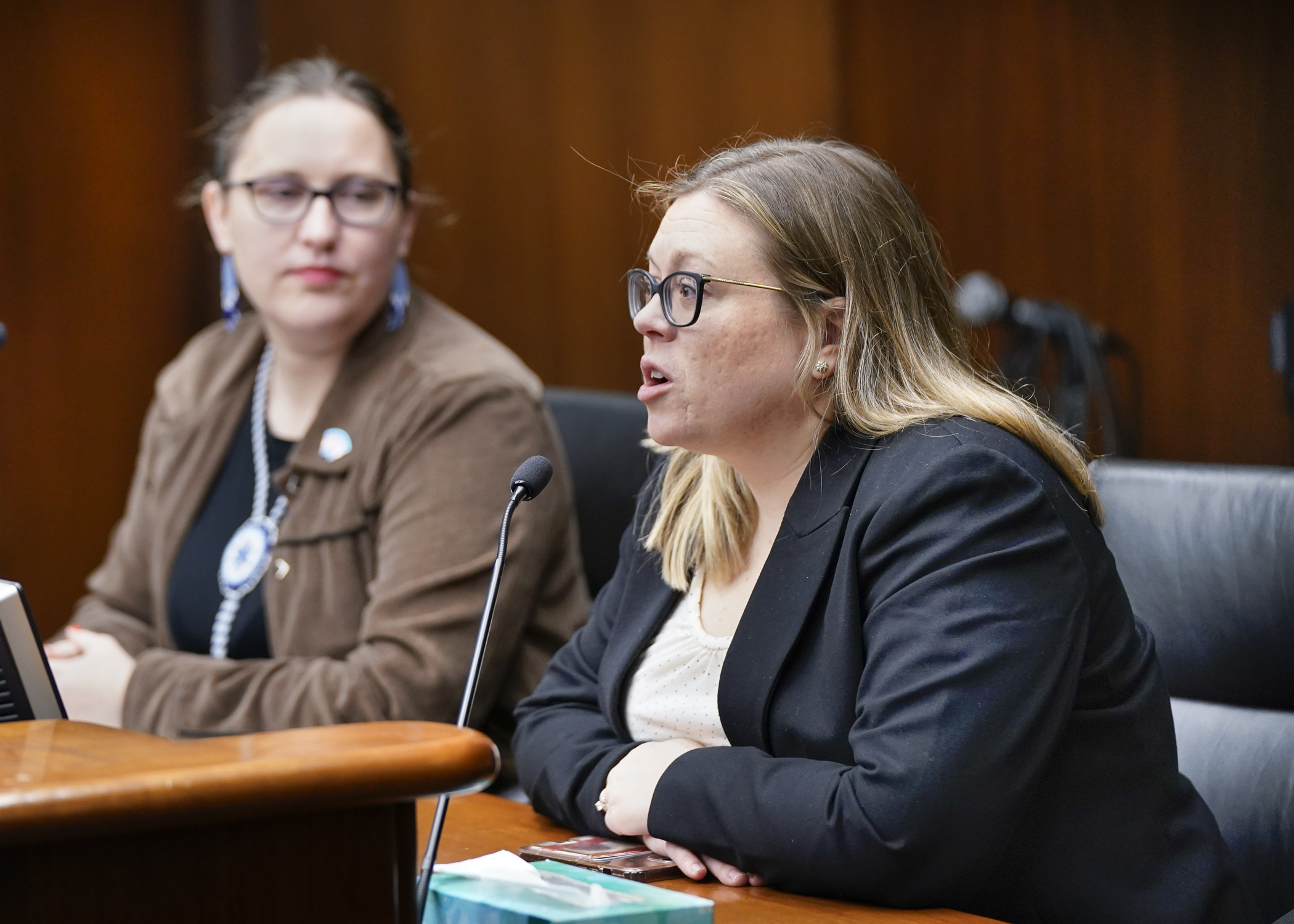As lawmakers face increased threats, bill could allow candidates to keep home addresses private

Politicians acknowledge that scrutiny comes with the position. Worrying about the safety of themselves and their family should not.
Especially in a post-Jan. 6 environment, targeting of elected officials has become commonplace, including armed protestors showing up unannounced at homes of legislators.
“It’s not one group, one side, it’s a universal problem,” said Rep. Duane Quam (R-Byron).
Rep. Kristin Bahner (DFL-Maple Grove) spoke Wednesday of being threatened, including one instance with a meme of a gun pointed at someone’s head. She’s been subject of posts encouraging armed people to protest outside her home, including the use of bullhorns.
“I remember having to work with law enforcement and thinking really hard about how it was going to impact my neighbors,” she said. Nearby residents include young children, one of whom does not do well around chaos, and an elderly woman in the early stages of dementia.
Rep. Jamie Becker-Finn (DFL-Roseville), too, has been subject to unwanted threats.
She sponsors HF789 that, as amended, would allow a candidate to request their address of residence be classified as private data based on “reasonable fear” related to their safety. Current law permits such privacy if a candidate certifies such concerns have led to the filing of a police report or order for protection.
“I signed up to serve my community, I did not sign up to put my children and my home at risk of violence or any other harm,” Becker-Finn said.
The bill was approved by the House Elections Finance and Policy Committee with no audible dissent and sent to the full House.
“It is sad that we are in a place that we should have to hide where we live as elected officials,” Bahner said. “… (Our neighbors) did not sign up for that, it is not fair to ask them to put up with that.”
Related Articles
Search Session Daily
Advanced Search OptionsPriority Dailies
Speaker Emerita Melissa Hortman, husband killed in attack
By HPIS Staff House Speaker Emerita Melissa Hortman (DFL-Brooklyn Park) and her husband, Mark, were fatally shot in their home early Saturday morning.
Gov. Tim Walz announced the news dur...
House Speaker Emerita Melissa Hortman (DFL-Brooklyn Park) and her husband, Mark, were fatally shot in their home early Saturday morning.
Gov. Tim Walz announced the news dur...
Lawmakers deliver budget bills to governor's desk in one-day special session
By Mike Cook About that talk of needing all 21 hours left in a legislative day to complete a special session?
House members were more than up to the challenge Monday. Beginning at 10 a.m...
About that talk of needing all 21 hours left in a legislative day to complete a special session?
House members were more than up to the challenge Monday. Beginning at 10 a.m...